Juggling Academics & Elite Sports – how one school is trying to make it easier.

In this conversation we speak with Antoine Laffay, Director of Sports at the International School of Geneva –Campus des Nations. Mr. Laffay has a wealth of experience in Physical Education and a passion for providing avenues for student athletes to succeed at an elite level, without having to sacrifice their academic potential. In this piece, Mr. Laffay highlights the challenges of communication and organisation for families of elite student athletes and explains how schools are well-positioned to provide more innovative approaches to supporting students and their families in managing their academic and athletic aspirations.
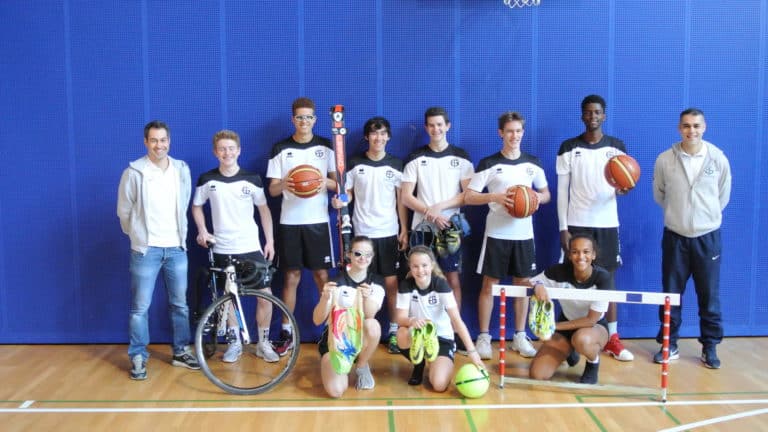
What are the challenges for a student athlete who performs at an elite level?
There’s a double challenge – academic and athletic. Students are held to the high expectations of their coaches as well as their teachers and have to balance a double life. The older students get, the more they have to make decisions, big and small, about what to prioritise at any one point in time: sport or academics. Rather than getting to the point where they completely sacrifice one or the other, it’s better to find a way to support them in managing both these important aspects of their lives.
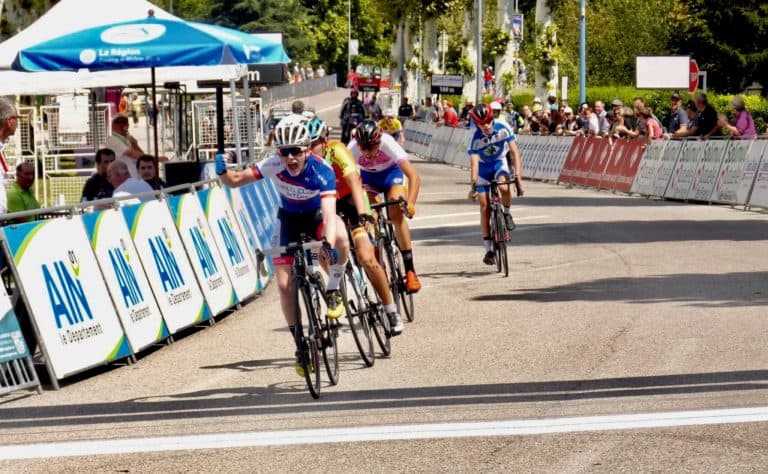
What are the challenges for the parents of such students?
There are so many different actors to communicate with and different elements to prioritise at any one moment. Parents need to inform the school about upcoming absences from class, liaise with teachers to organise material to study at home, and ensure important academic deadlines such as exams or assignments aren’t missed. They equally need to be in constant communication with their child’s coach regarding training schedules and important events. Sometimes a choice needs to be made and catching up needs to happen either academically or in the sports training. Another important element is health and medical care. When a young athlete is injured, parents are left largely unsupported in managing the treatment and rehabilitation of their child.
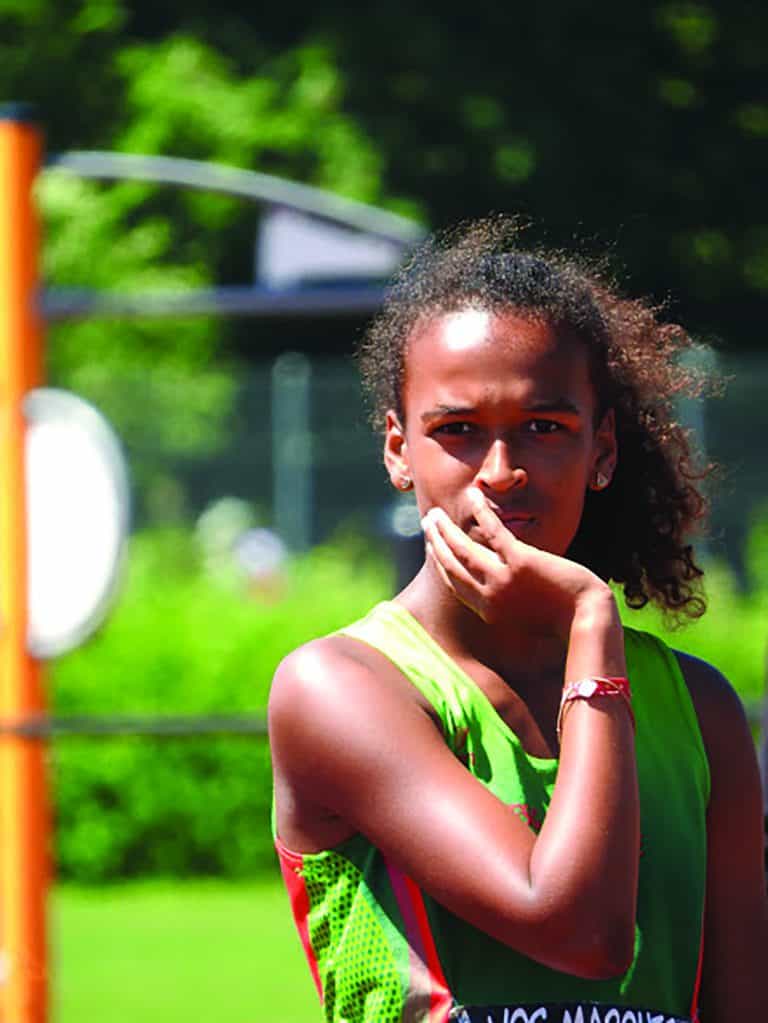
That sounds like a full-time job! How do they manage?
Other than constantly tearing their hair out?! Parents spend a lot of time emailing, calling and meeting teachers and school management to create a schedule and manage schedule changes to balance both aspects. Depending on the situation, they manage to find a tailored schedule that more or less works for the entire year, which isn’t often the case. Often, students keep the same schedule as their classmates and it’s a case by case basis to manage competitions. It’s complicated, it needs an incredible amount of work and availability on the part of parents.
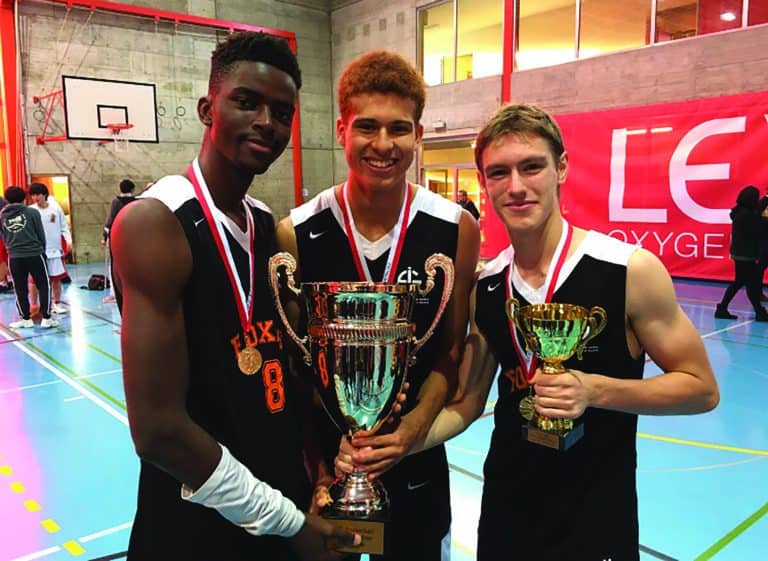
How can schools better support student athletes and their parents?
I think schools can step up to take a larger role in the life of a student athlete. Schools are at the centre of a student’s life. It’s where they spend the majority of their day. Schools are, therefore, best-placed to serve as a platform to facilitate the communication between all the different actors. One example is the way the Swiss public school system manages to group all the student athletes for larger sports federations such as football or hockey into one programme in one school. They organise a tailored academic and training programme for that group. But I don’t find that individualised enough, especially for age, level, and the variety of different sports that students perform.
How does your programme, Nations Sports+ meet these gaps?
The Nations Sports+ programme places itself at the centre of communication between parents, coaches and health professionals – as well as academics of course. It also takes on the responsibility of providing regular and fast access to health and medical professionals and services. Our objective is to make managing all of the aspects of academics and sport a smoother experience for students and their families, with fewer stressful unknowns and problems. We create a tailored programme for the individual student athlete based on their age, level and sport.
There are four main pillars to the programme. Firstly, we organise individualised physical training before and after school, incorporating instructions from the student’s coach or sport federation (if the student performs at a national level). We regulate the intensity of the objectives according to the calendar of competitions. Another goal of this element is to avoid a situation where a student misses class owing to scheduled training during the school day. We speak with the coach and ensure that the same preparation is covered from 7am – 8am that morning and the student doesn’t have to miss class.
The second important pillar is a dedicated medical team that follows the students. We have developed a partnership with Dr. Boris Gojanovic – Health and Performance Medical Director at the Hôpital de la Tour – who is our medical advisor. The Hôpital de la Tour is a medical centre approved by Swiss Olympic, and it’s compulsory for student athletes who have a Swiss Olympic Card to receive medical attention in a Swiss Olympic-approved medical centre. Dr. Gojanovic performs a complete medical check of all students in the programme, including electro-cardiogram, blood test, and muscular composition. If a student suffers a serious injury, we have direct access to him for a fast-track appointment, MRI scans and precise diagnosis of what the student can and cannot do for the moment. A physiotherapist comes weekly to the school and works with any students who’ve experienced small injuries over the weekend. Students are given professional medical advice: whether they should go see Dr. Gojanovic, or adapt their training for a certain period, according to the diagnosis made. This is communicated to our personal trainers and the coaches. Lastly, a nutritionist works with students at the beginning of the year to create a nutrition plan and revisits these with the students 3-4 times throughout the year.
The third pillar is the student’s academic progress, which remains a top priority. We want them to complete successfully their MYP or IB Diploma because they need to be prepared for and open to options other than sports. I personally hold a meeting once a month with the students to discuss grades, areas they’re struggling with, whether extra tutoring needs to be arranged. If a student needs to go away for an extended period for a placement or competition, we can anticipate and put measures in place so the student keeps up with their academic studies.
Lastly, the school organises information sessions on issues related to the world of elite sports. We want students to be vigilant and informed about the more negative aspects of an athlete’s life, to avoid situations of being offered products, money or other things that could compromise their integrity and career. Doping is typical example. Students need to be regularly reminded what it is, how they might knowingly and unknowingly be drawn into it, and how to avoid this. There are products that are prohibited on an international level that students need to be aware of. These can even be products to treat something as simple as the ‘flu that students need to avoid. So, we will revise the list of products accepted by the student’s sport federation. Dr. Gojanovic also supports these sessions and students are open to call him at any time to check a product is OK. We want students to feel supported, and confident to communicate any issues that may arise.
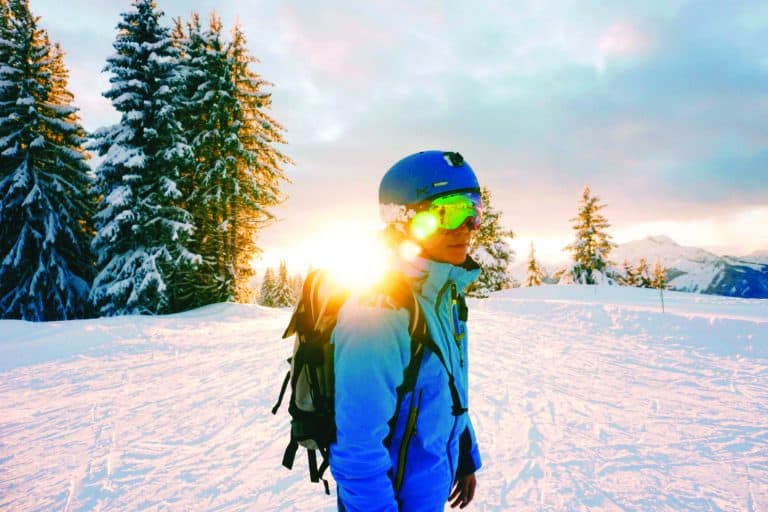
You believe incorporating the health and medical care is the most innovative part of Nations Sports+. Why is it so important?
It’s important because students and their families need to be reassured that the health professionals looking after them are competent and trustworthy and that precise, coherent diagnoses are being made and adapted to their child and their needs.
In the world of adolescent sport, there are two things we need to be aware of. Firstly, when a student is hurt, it’s not clear where to go and how to proceed. Secondly, after an injury, the student athlete will often be put aside. Whether off for a week or months, they’re usually left to their own devices.
What we are able to do is adapt their training to focus on areas other than the injured one, so we gain time in their ability to re-enter smoothly after their rehabilitation. The other advantage of including a medical team is in avoiding small injuries becoming more serious. Students can work with the physiotherapist to anticipate issues and adapt their programme to recuperate quickly from small injuries. The availability of a medical professional to advise a few days rest at such a moment can prevent more serious injury or the development of a chronic issue in which case the student could lose months during the season, falling far behind their teammates.
So including a medical team helps the student in their performance short-term and long-term and this is the strength and originality of our programme.

What do the students have to say about:
… their biggest challenges juggling academics and elite sports.
Unlike other students, I don’t have the same amount of free time.
Henry | Cycling | Yr 12 IB Diploma
The biggest challenge I face is probably the timing. Most of the rock climbing gyms are outside of Geneva and I sometimes go as far as Lausanne after a school day.
Christopher | Rock climbing | Yr 12 IB Diploma
For me, it is the start of the year… creating a timetable that everyone can agree on, the fact that missing practice shouldn’t be a regular occurrence, while working hard at school and studying for tests/exams is very important.
Harrison | Basketball | Yr 11 MYP
The biggest challenge is to keep up with homework when you train nearly every day. Your homework time is limited and every minute of your extra time is used for it.
Heloise |Track and Field | Yr 9 MYP
The biggest difficulty is definitely fatigue. If you’re not managing your time well you’ll get worn out really quick due to the mental and physical strain. It is really important to be able to rest and recuperate, but at my stage in the IB there is basically no time off, so I sometimes miss out on much-needed rest.
Liam |Basketball | Yr 13 IB Diploma
Trying to find time to do all the homework while still producing quality work and having time to relax and do sport can prove to be difficult.
Danielle | Synchronised swimming | Yr 9 MYP
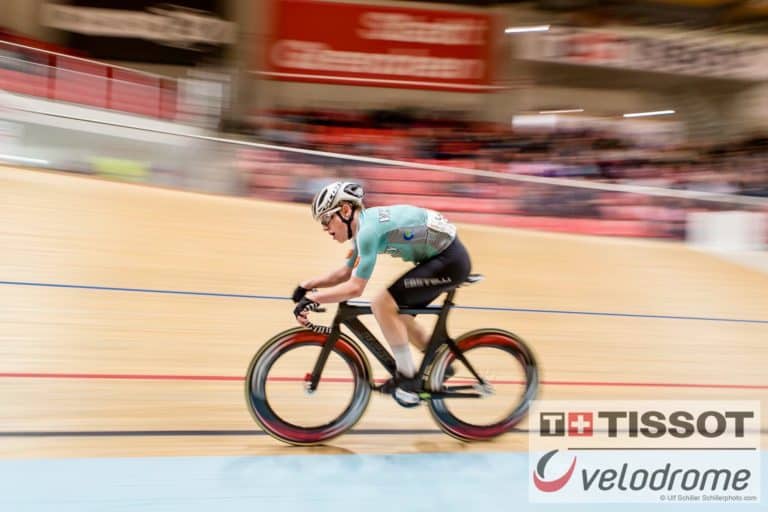
… the importance of academics.
The unpredictability of sports means that you can’t afford to have no back up plan if something goes wrong, or if you end up not being good enough. On top of this it is not always possible to make a decent living out of your sport in the short and long term; this means that even if you have a career in the sporting world until you are 35, you still need to be able to turn to something you are passionate about, that you want to do and that you may even have a degree in.
Henry | Cycling | Yr 12 IB Diploma
It’s extremely difficult to make it big in sports, and if you do, there’s always the risk of a career-ending injury or just performance drop. Without academics on the side, after your sports career ends, you won’t have many options available. Therefore, having a backup or a plan B is always a good idea. That is why I believe it is important to pursue academic success alongside elite sports. Liam |Basketball | Yr 13 IB Diploma
Without my sport I wouldn’t have learned very valuable things like respect and hard work but in the end academics is my number 1 priority. For me I see academics as my future, a tool I can use to build my life and while I love my sport I won’t always be able to do it.
Danielle | Synchronised swimming | Yr 9 MYP
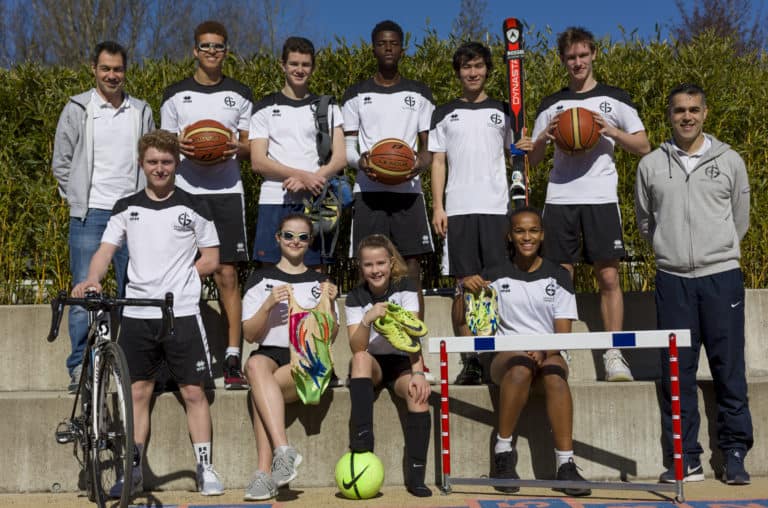
… how they feel best supported.
I think the best is that I have been permitted to miss a regular weekly assembly (unless it is very important) to be able to go early to climb. This allows me three more hours of time to be able to get to the gyms that are further away much more easily.
Christopher | Rock climbing | Yr 12 IB Diploma
I don’t think that you can balance both academics and sport without people supporting you along the way: I wouldn’t be able to do anything without my parents’ support. My teachers are also very supportive and my coach is very understanding about school. Earlier this year I injured my back and since joining the Nation Sports+ programme they have supported me in my healing. As for the academic side of it, when I asked for math help I was provided quickly with a tutor and feel much more confident and seem to be getting better grades in math.
Danielle | Synchronised swimming | Yr 9 MYP
I think my parents have always been there and are the ones who sacrifice the most time and who are the most committed to ensure that I succeed. However, it would be wrong to say that they are the only ones who contribute to the support. My coach will always give me hours to train around my academic hours and not the other way around. Nations Sports+ providing tutors has proved to be extremely useful in my case, as I made a big jump from a public to a private school and was behind in terms of work from day one. It’s this combination of everyone willing to support you and believing in you which create the perfect atmosphere in which you can succeed both in the academic world but also in our beautiful world of sports and competition.
Henry | Cycling | Yr 12 IB Diploma
The International School of Geneva, also known as “Ecolint” or “The International School”, is a private international school based in Geneva, Switzerland. www.ecolint.ch
Link to Nations Sports+
https://sites.google.com/ecolint.ch/beyondtheclassroom/sports/nations-sports
More from International School Parent
Find more articles like this here: www.internationalschoolparent.com/articles/
Want to write for us? If so, you can submit an article for consideration here: www.internationalschoolparent.submittable.com
